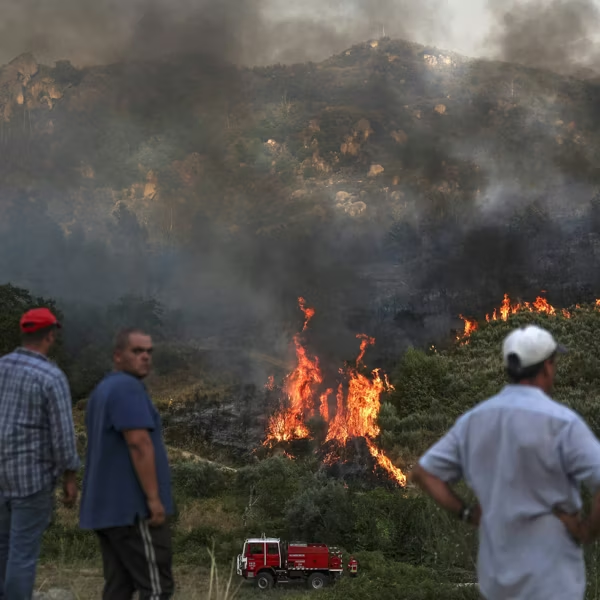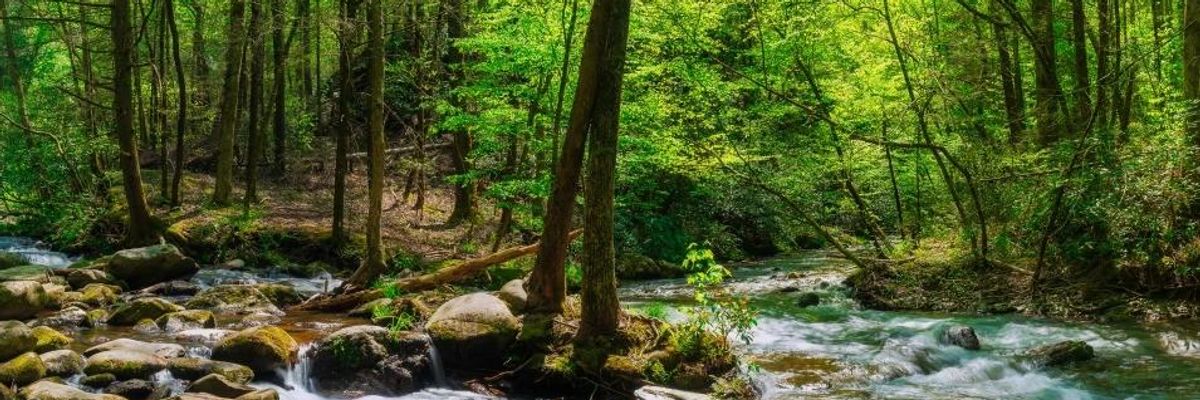What does it mean to be a person, legally?
Aren't people persons? Yes.
But, are only people persons? Most definitely not.
A human being is considered a "natural" person under the law, whereas certain other entities, including corporations and ships, are considered "legal" or "artificial" persons. Black's Law Dictionary defines a legal person as an entity with "its own rights and duties."
What we find is that under the law, there are either persons capable of having rights, or property (things), "over which rights may be exercised."
When the U.S. Constitution was ratified, women, indigenous peoples, and slaves were treated as property, without rights.
Nature is still considered to be property under the law, but that is beginning to change, thanks to the Rights of Nature movement.
In 2006, the first law recognizing legal rights of nature was adopted in Tamaqua Borough, Pennsylvania. It was the first such law not only in the United States, but in the world. Communities across ten states have since followed suit.
In 2008, Ecuador enshrined legal rights of nature--or Pacha Mama--in its constitution. Bolivia now has a national law in place, as does Uganda.
Over the past several years, courts in India, Bangladesh, and Colombia have determined that rivers and other ecosystems possess legal rights. This includes a decision by Colombia's Constitutional Court, which ruled that the Atrato River is a "subject of rights," including rights to "protection, conservation, maintenance, and restoration."
This movement to recognize rights of nature follows decades of environmental laws which treat nature as property, and thus as right-less under the law. Treating ecosystems as property, environmental laws have historically regulated the use or exploitation of the natural world, such as laws which authorize fracking, drilling, and other uses of nature.
The consequences are proving catastrophic, including the bleaching and die-off of the world's coral reefs, species extinction levels well beyond natural background rates, and, of course, an accelerating climate crisis.
But a shift is underway to transform nature from being right-less property to bearing rights itself, in what the Colombia court described as a necessary "step forward in jurisprudence."
Yet, by becoming a bearer of rights, nature is now being thrust into the murky realm of legal personhood.
For example, since 2014, New Zealand's Parliament has codified several landmark legal settlements between indigenous peoples and the national government, which establish that the Whanganui River and other ecosystems have rights, as well as the "powers, duties, and liabilities of a legal person."
Then, in 2017, the State of Uttarakhand's high court in northern India ruled the Ganges and Yamuna Rivers are "legal persons" with "all corresponding rights, duties and liabilities of a living person." The rivers are suffering significant degradation from pollution, industry, and other human activity.
Together, these represent important developments in the movement to secure legal rights of the natural world.
However, in its appeal of the decision to the India Supreme Court, the state government asks what happens if the river floods and someone dies, can state officials - named "in loco parentis" (effectively as guardians of the rivers) - be held responsible?
Can we hold a river liable for flooding? Or the climate accountable for rising ocean temperatures? The answer is "no." So, does that mean rivers or other ecosystems are unable to possess rights? The answer again is "no."
Legal personhood is a doctrine which arose to address human rights and responsibilities.
Ecosystems are not human, and they certainly don't bear human responsibilities. Rather, nature requires its own unique rights that recognize its needs and characteristics.
As there is growing agreement among lawmakers and courts across the globe that it is time to recognize nature as possessing rights, legal systems need to evolve as well. This means moving beyond legal personhood.
The future will recognize the rights of ecosystems. As it does, a new framework is needed in which legal and judicial systems are equipped to properly implement and enforce the rights that nature needs to be healthy and thrive. This new framework - legal naturehood - would focus on upholding the legal rights of nature, such as those found in Ecuador's Constitution, including rights to exist, regenerate, evolve, and be restored. Implementation means ensuring human activities do not violate the rights of nature, and that our actions become consistent with those rights.
For instance, to implement the Colombia ruling recognizing rights of the Atrato River, the court instructed the government to work with the indigenous peoples in the river basin to restore the river and realize the promise that legal rights afford.
The rights of nature represents necessary legal and cultural shifts in which we understand ourselves as part of nature, and not, as Colombia's Constitutional Court explained, "a ruler of nature."
Much like in Galileo's time in which we were forced to accept that the sun does not revolve around the earth, today we must realize that the natural world does not revolve around us. In this fiftieth anniversary year of the moon landing, perhaps it is time that we once again reconsider our place in the universe.




